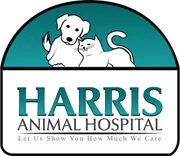Did you know that Fido can suffer from many painful dental issues? If you’ve ever had a toothache, you know how painful they can be. These problems aren’t any more fun for dogs than they are for us. A local Roanoke, VA vet lists some of the ones that most often affect our canine pals below.
Gum Disease
Gum disease is extremely widespread among our canine companions. In fact, as many as 75 percent of pups over aged three are afflicted. As with people, gum disease is painless in its early stages. However, as it progresses, it can cause tooth shifting or loss. It has also been linked to many serious health issues, such as heart disease.
Misalignments
Misalignments are also fairly common in our furry friends. In some cases, this is mostly a cosmetic issue, and not one that really matters overmuch. Dogs are still adorable with crooked smiles! However, sometimes misalignments can cause issues, such as chewing problems or sinus trouble.
Cracked or Broken Teeth
This one isn’t much of a surprise. Fido uses his teeth to play, and he certainly does enjoy chewing on things. It’s not unusual for our canine buddies to damage their teeth by playing with, pulling on, or gnawing hard objects.
Abscesses
Abscesses are just as painful for dogs as they are for people. The main difference is that Fido can’t tell you if his teeth hurt. You’ll want to watch for things like swelling or sensitivity. Swelling is particularly dangerous. An infection that close to the brain has the potential to become very serious, and can even be fatal. For more details on how to recognize if your dog is in pain, check out our article on Signs of Pain in Dogs.
Overcrowding
This is often an issue with little dogs, who just don’t have very much real estate available in their mouths. Overcrowding, like misalignments, can sometimes cause other issues. Fido may even need to have one or more of his choppers pulled if the issue is severe.
Tips
Keep a close eye out for signs of dental problems. Some common ones include bad breath, ropy or bloody drool, tartar buildup, and bleeding gums. There are also a few behavioral clues, such as reduced interest in play, withdrawal, grumpiness, shying, and changes in eating habits. Call your vet right away if you notice any of these symptoms.
Our Advice on Common Dental Issues in Dogs in 2024
What are the most common causes of tooth fractures or breakages in dogs, and how can owners prevent these types of injuries?
The most common causes of tooth fractures or breakages in dogs include chewing on hard objects like bones, antlers, and hard plastic toys, as well as accidents during play or collisions. To prevent these injuries, owners should provide softer chew toys designed for dental safety and avoid giving dogs excessively hard items. Regular dental check-ups can help identify and address potential issues early. Supervising playtime and discouraging behaviors like chewing on inappropriate objects can also reduce the risk of dental injuries. Consulting with a veterinarian for safe toy recommendations is beneficial.
How can dog owners manage their pet’s dental health if they are unable or unwilling to brush their teeth regularly?
Dog owners can manage their pet’s dental health without regular brushing by providing dental chews and toys designed to reduce plaque and tartar buildup. Incorporating a dental diet or treats specifically formulated for oral health can also be beneficial. Regular veterinary cleanings are crucial, as they provide thorough care that at-home methods cannot achieve. Additionally, water additives and dental rinses can help maintain oral hygiene. It’s essential to monitor for signs of dental issues, such as bad breath or changes in eating habits, and seek veterinary advice as needed.
What are the potential risks and benefits of non-anesthetic dental cleanings for dogs, and in what circumstances might this option be recommended by a veterinarian?
Non-anesthetic dental cleanings for dogs can reduce plaque and tartar without the risks associated with anesthesia, making them appealing for pets with anesthesia sensitivity. However, these cleanings often don’t address below-the-gumline issues, where periodontal disease begins, and might miss early signs of serious conditions. They may be beneficial for dogs with mild tartar buildup or those with health issues that make anesthesia risky. Veterinarians might recommend this option as a supplement between regular anesthetic cleanings, but it’s not a replacement for comprehensive dental exams and treatments under anesthesia.
What are some of the most advanced dental treatments available for dogs with severe or chronic oral health issues?
Advanced dental treatments for dogs with severe or chronic oral health issues include root canal therapy, which preserves a damaged tooth by removing the infected pulp. Periodontal surgery is another option, addressing severe gum disease by cleaning below the gumline and reshaping the bone. Crown restorations can protect and strengthen damaged teeth. In cases of significant oral damage or disease, tooth extraction may be necessary. Veterinary dentists may also use advanced imaging techniques, like dental X-rays or CT scans, to diagnose and plan treatment effectively. These treatments aim to alleviate pain and restore oral health.
Are there any natural or homeopathic remedies that may be effective in promoting dental health in dogs, and what is the scientific evidence supporting their use?
Natural remedies like coconut oil and neem oil have been suggested to promote dental health in dogs due to their antimicrobial properties. Coconut oil can be applied to the gums or used in homemade dog treats. Neem oil can be found in some pet dental products. Additionally, raw carrots and apples can act as natural teeth cleaners by reducing plaque buildup. However, scientific evidence supporting the effectiveness of these remedies is limited. While they may offer some benefits, they should not replace regular dental care practices, such as professional cleanings and veterinarian-recommended products.
Do you know or suspect that your canine pal is having dental troubles? Contact us, your local Roanoke, VA veterinary clinic, today!



